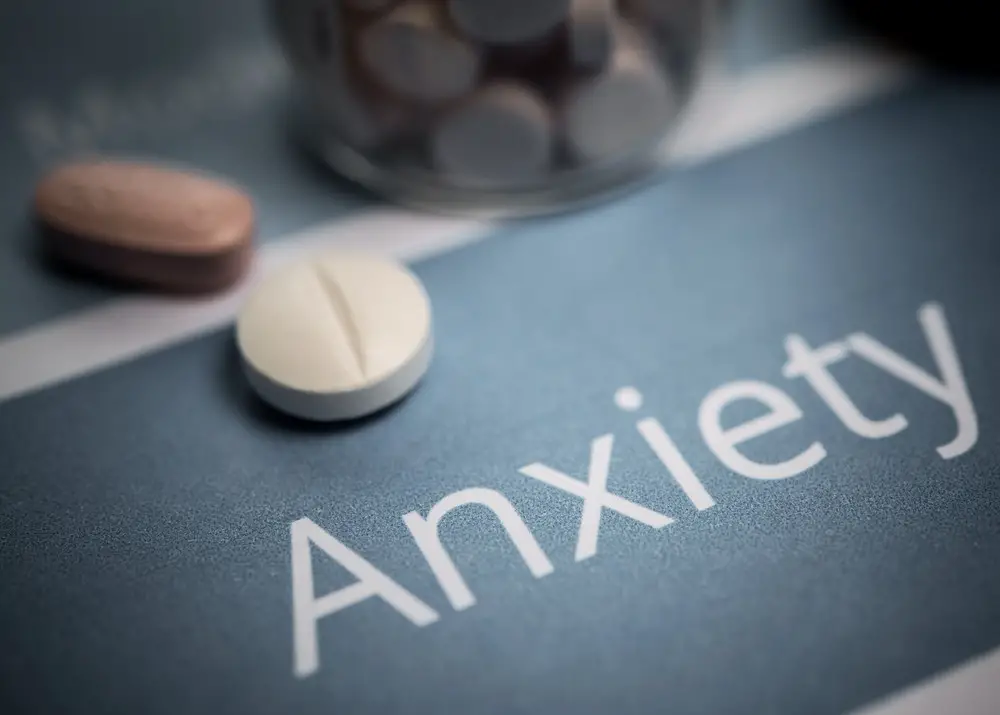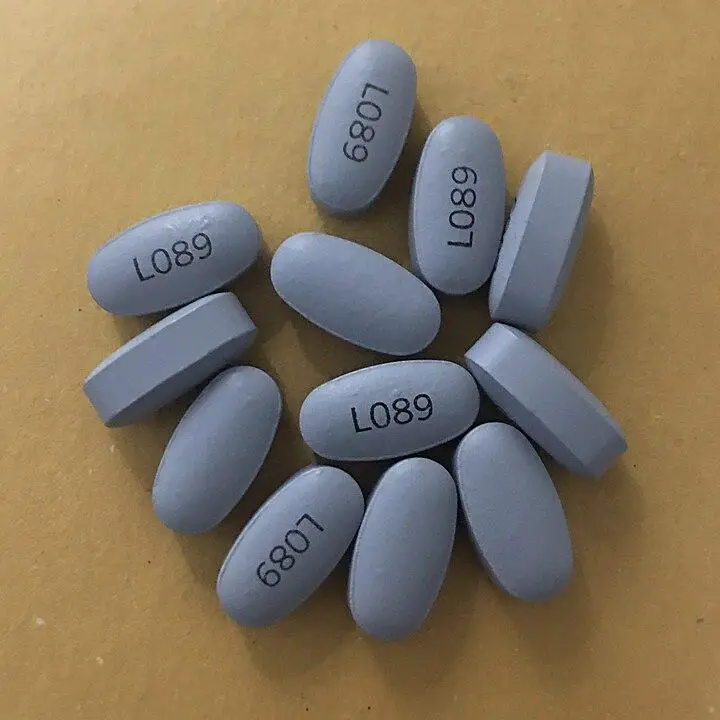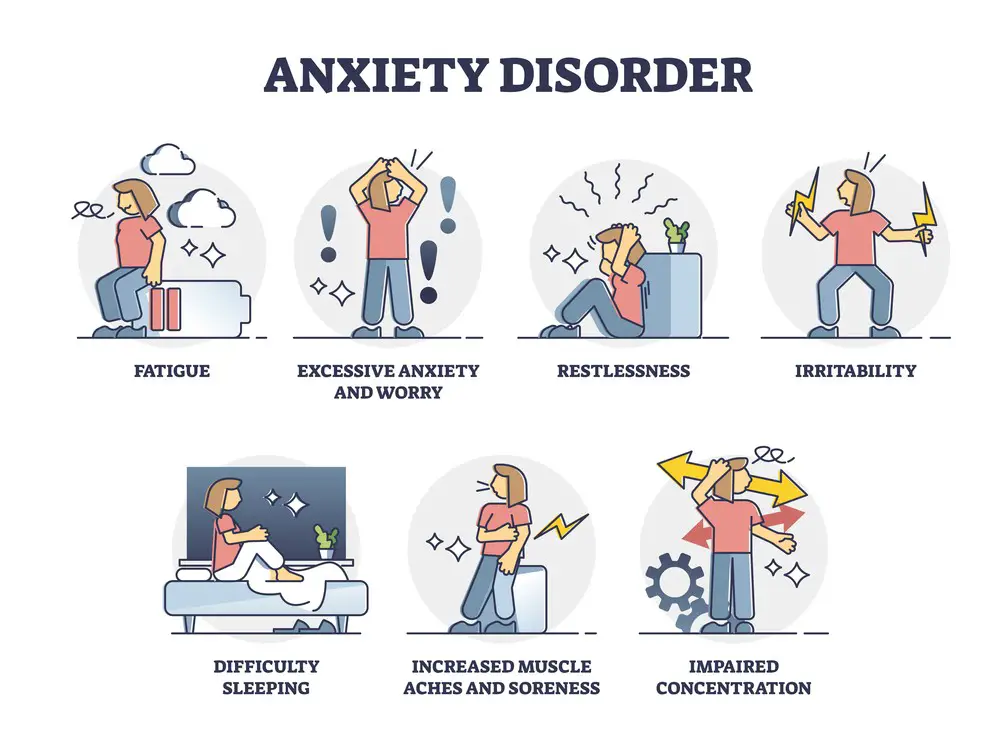As a BetterHelp affiliate, we receive compensation from BetterHelp if you purchase products or services through the links provided
Depakote, an anticonvulsant drug, has gained traction as a potential treatment for anxiety disorders. As a medication primarily used to manage conditions such as bipolar disorder, epilepsy, and migraine, Depakote works by reducing excessive neuronal activity in the brain. Recent findings indicate that these calming effects may also be beneficial for individuals struggling with anxiety symptoms, such as performance anxiety, social anxiety, or comorbid depression.
Understanding the intricacies of anxiety disorders is essential when considering Depakote as a viable treatment option. With a wide range of symptoms and potential triggers, the effectiveness of Depakote in addressing these complexities is yet to be fully explored. Despite this, some individuals have reported improvements in their anxiety by incorporating Depakote into their treatment plan under a doctor’s supervision.
Key Takeaways
- Depakote, an anticonvulsant drug, is being considered as a potential treatment for anxiety disorders.
- Its calming effects on the brain may benefit individuals with performance anxiety, social anxiety, or comorbid depression
- The effectiveness of Depakote for anxiety is still being explored, and individuals should consult their doctor before incorporating it into their treatment plan
Understanding Depakote
Depakote, also known as divalproex sodium or valproic acid, is a medication that was originally developed as an anticonvulsant to treat epilepsy. Over time, it has been found to be effective for other conditions, such as bipolar disorder, migraine headaches, and anxiety. When it comes to anxiety, it’s important to recognize how Depakote functions and its potential benefits.
The exact mechanism of action for Depakote in treating anxiety is not entirely understood. However, it is believed to help increase levels of the neurotransmitter GABA in the brain. GABA acts as a natural calming agent, helping to relieve anxiety symptoms by inhibiting overactive nerve communication. This can result in more stable moods and improved emotional regulation.
Though Depakote has shown some effectiveness in addressing anxiety symptoms, it is primarily used as a mood stabilizer in the treatment of bipolar disorder. In cases where a person suffers from panic disorder and associated mood instability, Depakote may be used as a complementary treatment alongside their primary medication if it isn’t functioning optimally.
Keep in mind that every individual reacts differently to medications. If you’re considering Depakote for anxiety, it’s crucial to consult with a mental health professional or medical doctor to determine the best course of action for your specific situation. They can guide you through potential benefits and side effects, dosage recommendations, and any other considerations to help you make an informed decision.
 The Use of Depakote in Treating Anxiety
The Use of Depakote in Treating Anxiety
If you’re dealing with anxiety, Depakote might be a treatment option worth considering. Depakote, also known as valproic acid or divalproex sodium, is a prescription drug commonly used to treat mood episodes in bipolar disorder, certain types of seizures, and migraine prevention. But did you know it has potential benefits for those experiencing anxiety and panic disorders as well? Let’s dive into it.
Depakote is believed to work for anxiety by increasing the amount of gamma-aminobutyric acid (GABA) in the brain. GABA is a neurotransmitter that helps regulate mood and relax the nervous system. By boosting GABA, Depakote can potentially alleviate anxiety symptoms and stabilize mood. This makes it a possible option for those suffering from panic disorder or anxiety disorders.
While it might not be the first-line treatment for anxiety disorders, studies have shown that Depakote can be beneficial in reducing panic symptoms and providing mood stabilization. This is especially true when it’s used alongside another primary medication that might not work well enough. As with any medication, you must consult your doctor to determine if Depakote is the right choice.
A few considerations while using Depakote for treating anxiety include:
- Depakote might have a faster response compared to first-line antidepressant agents.
- You’ll need periodic monitoring of blood tests, including complete blood count (CBC), liver function tests (LFTs), and drug levels.
- If you’re also dealing with social anxiety disorder, remember that benzodiazepines could be another treatment option.
While atenolol wasn’t one of the mentioned entities in the provided search results, it’s important to note that atenolol is a beta-blocker, which may help treat physical symptoms of anxiety, such as increased heart rate, shaking, or sweating. It’s not directly linked to Depakote, but it may be an alternative option to discuss with your healthcare provider.
In conclusion, Depakote can be a potentially helpful option for treating anxiety and panic disorders, with scientific evidence supporting its benefits. Always consult with your doctor before making any changes to your treatment plan.
Health and Safety Considerations
When considering Depakote for anxiety, it’s essential to be aware of the health and safety factors associated with this medication. The FDA has approved Depakote for seizures, bipolar disorder, and migraine prevention, but not specifically for anxiety. However, some doctors may still prescribe it for anxiety off-label.
One of the main concerns with Depakote is its potential to cause liver damage, especially in the first six months of treatment. Monitoring your liver function with regular blood tests during this time is crucial. Your doctor will likely schedule these tests to ensure your liver remains healthy while taking Depakote.
Another significant concern is the risk of birth defects if taken during pregnancy. If you’re pregnant or planning to become pregnant, it’s essential to discuss this with your healthcare provider before starting Depakote. They may recommend alternative medications or treatments that pose less risk to your unborn child.
Regarding other health-related issues, routine blood tests are necessary while taking Depakote to monitor blood cell counts. It’s crucial to stay in regular contact with your healthcare provider and report any unusual symptoms, such as severe fatigue, bruising, or infections.
In summary, before using Depakote for anxiety, weigh the benefits and risks and discuss them thoroughly with your healthcare provider. Education and open communication can help you make informed decisions and stay on top of potential health concerns during treatment.
 Understanding Anxiety and Panic Disorders
Understanding Anxiety and Panic Disorders
Anxiety is a natural emotion that everyone experiences from time to time. However, when it becomes excessive and affects daily functioning, it might be considered an anxiety disorder. Anxiety disorders include generalized anxiety disorder, social anxiety disorder, panic disorder, and specific phobias. They can cause persistent worry, fear, and nervousness, often interfering with your ability to work, study, or enjoy life.
Panic attacks, on the other hand, are sudden episodes of intense fear or discomfort that typically peak within minutes. They can occur unexpectedly and often feel frighteningly out of control. Symptoms may include heart palpitations, sweating, trembling, or feeling like you’re choking or going to die.
Stage fright, also known as performance anxiety, is a form of social anxiety that occurs when you’re required to perform in front of others. This can range from giving a speech or participating in a group discussion to performing in a play or playing a musical instrument. Recognizing and understanding the differences between stage fright, anxiety, panic attacks, and panic disorder are crucial to finding appropriate treatment and support.
Managing anxiety and panic disorders involves a combination of self-help strategies, therapy, and sometimes medication. Cognitive-behavioral therapy (CBT), exposure therapy, and relaxation training can effectively treat these conditions. In some cases, medications such as selective serotonin reuptake inhibitors (SSRIs), benzodiazepines, or beta-blockers might be prescribed.
With the information available on Depakote for anxiety, it is essential to consult a mental health professional to determine if this medication is suitable for your specific needs. In the meantime, remember that it’s possible to regain control of your life with the right support and treatment plan in place – don’t hesitate to reach out for help.

Dosage and Age Considerations
When it comes to using Depakote for anxiety, it’s essential to consider the appropriate dosage and age of the patient. Depakote is primarily prescribed for complex partial seizures, simple and complex absence seizures, migraine, and mood disorders, but may sometimes be used off-label for anxiety.
- Children: It’s important to note that Depakote is only approved for pediatric patients up to the age of 10 years when used as a treatment for complex partial seizures. However, for anxiety treatment in children, it’s crucial to consult with a healthcare professional before administering any dosage.
- Dosage: Dosage varies from patient to patient based on weight, severity of the condition, and age. It’s essential to follow your doctor’s recommendation for the right dosage and schedule.
- Delayed-release tablets: These are available in 125 mg, 250 mg, and 500 mg quantities.
- Extended-release tablets: You can find these tablets in quantities of 250 mg and 500 mg.
- Delayed-release sprinkle capsules: The dosage for these is 125 mg.
- Valproic acid capsules: These are available in 250 mg.
- Valproate sodium oral solution: The dosage for this is 250 mg per 5 mL.
While Depakote may be used off-label for anxiety, it’s essential to weigh the potential benefits and risks with your healthcare professional. Remember to consult with them to determine the appropriate dosage and treatment plan for your unique situation, and follow their guidance closely.
 Side Effects of Depakote
Side Effects of Depakote
Depakote, a medication used to treat certain types of seizures, bipolar disorder, and migraines, may also be considered as a treatment option for anxiety. However, it’s essential to know the potential side effects of Depakote. Here, we will discuss some common and severe side effects you may experience while taking this medication.
- Common Side Effects: You might experience several common side effects that are usually mild and manageable. These may include:
- Headache
- Nausea
- Dizziness
- Hair loss
- Vomiting
- Weakness
- Swelling
These side effects often fade over time as your body adjusts to the medication. If they persist or worsen, consider discussing this with your healthcare professional.
- Severe Side Effects: While less likely, Depakote can also cause more serious side effects. If you notice any of the following issues, contact your healthcare provider right away:
- Skin rash
- Severe drowsiness
- Signs of an allergic reaction, such as swelling of the face, lips, or tongue, difficulty breathing, or hives
- Unusual weight gain
- Persistent ringing in the ears
Remember, it’s crucial to inform your healthcare provider about any troubling side effects you may experience, as they can help determine if Depakote is the right treatment option for you. It’s essential to weigh the potential benefits of the medication against its possible side effects and make an informed decision about your treatment.
Depakote for Other Issues
Depakote, also known as divalproex sodium, is primarily prescribed for certain mental health conditions and neurological disorders. While its primary use is for addressing anxiety, it is also effective in treating several other issues, including:
- Bipolar disorder: Depakote is often used to manage manic episodes associated with bipolar disorder, helping to stabilize moods and prevent the rapid cycling of mood episodes.
- Seizures: As an anticonvulsant drug, Depakote helps reduce the frequency and severity of epileptic seizures.
- Migraines: Some people find relief from migraine headaches with Depakote, which can help prevent these debilitating episodes.
- Depression: Although Depakote is not primarily prescribed for depression, it has been known to help with depressive symptoms in some cases.
It’s essential to remember that each person’s experience with Depakote may vary, and only a healthcare professional can determine if it’s the right medication for your specific needs.
When taking Depakote, it might be a good idea to:
- Keep track of your mood and symptoms: This can help you and your healthcare provider determine the medication’s effectiveness for your situation.
- Communicate with your doctor: Regularly update your healthcare provider on your progress, any side effects you experience, or if your symptoms worsen.
- Be patient: Give the medication some time to work, as the full benefits may take a while to become apparent.
Remember that only a healthcare professional can provide personalized advice on whether Depakote is the right medication. Don’t hesitate to ask questions and raise concerns about your treatment and alternative options.
Frequently Asked Questions
What is the typical dosage of Depakote for anxiety?
The ideal dosage of Depakote for anxiety treatment may vary depending on the individual’s needs and response to the medication. Your doctor will typically start you on a lower dose and adjust it based on your response to the treatment. It’s important to follow your doctor’s instructions and not to change or stop taking the medication without consulting them.
How effective is Depakote for anxiety and depression?
Depakote is primarily used to treat epilepsy, bipolar disorder, and migraines. Its efficacy for treating anxiety and depression is less established, with mixed results in studies and individual experiences. While some people find Depakote helpful for managing anxiety or depressive symptoms, others may not experience significant improvements. Your doctor can work with you to determine if Depakote is a suitable treatment option for your specific situation.
What are common side effects of Depakote in the treatment of anxiety?
When used for anxiety treatment, some common side effects of Depakote may include:
- Nausea
- Dizziness
- Drowsiness
- Weight gain
- Hair loss
- Tremors
Remember that not everyone experiences the same side effects; some may be more severe than others. You must talk to your doctor about any concerns or unusual side effects you experience while taking Depakote.
How does Depakote compare to benzodiazepines for anxiety management?
Depakote and benzodiazepines are different types of medications with distinct mechanisms of action. Benzodiazepines are commonly prescribed for short-term anxiety treatment due to their fast-acting calming effects. On the other hand, Depakote is not specifically an anxiety medication, and its effects on anxiety may be less pronounced. The choice between the two typically depends on the severity and nature of your anxiety, as well as any underlying conditions or other medications you’re taking. Always consult a healthcare professional to determine the best course of treatment for your specific needs.
What are some reviews of Depakote for anxiety treatment?
Reviews of Depakote for anxiety treatment can vary widely. Some individuals report success in managing their anxiety symptoms, while others may not find it helpful or experience unpleasant side effects. It’s vital to remember that everyone’s experience with medications can be different, and what works for one person may not work for another. Your doctor can guide you on whether Depakote is appropriate for your situation.
Can Depakote be used for anxiety in the elderly?
Depakote may be prescribed for elderly individuals experiencing anxiety, depending on their overall health and other conditions they may have. However, like with any medication, it’s essential to carefully consider potential side effects, drug interactions, and any other concerns specific to the individual’s health. Suppose you or a loved one is an older adult with anxiety. In that case, it’s critical to work closely with a healthcare professional to determine if Depakote or another medication is the most appropriate treatment.
- 7 Ideas to Help You Relax and Unwind on a Family Vacation - April 27, 2025
- How Having Cybersecurity Protection Helps You Relax - April 25, 2025
- 8 Reasons Why Spending Time Outside Calms You Down - April 25, 2025
This site contains affiliate links to products. We will receive a commission for purchases made through these links.


 The Use of Depakote in Treating Anxiety
The Use of Depakote in Treating Anxiety Understanding Anxiety and Panic Disorders
Understanding Anxiety and Panic Disorders Side Effects of Depakote
Side Effects of Depakote
